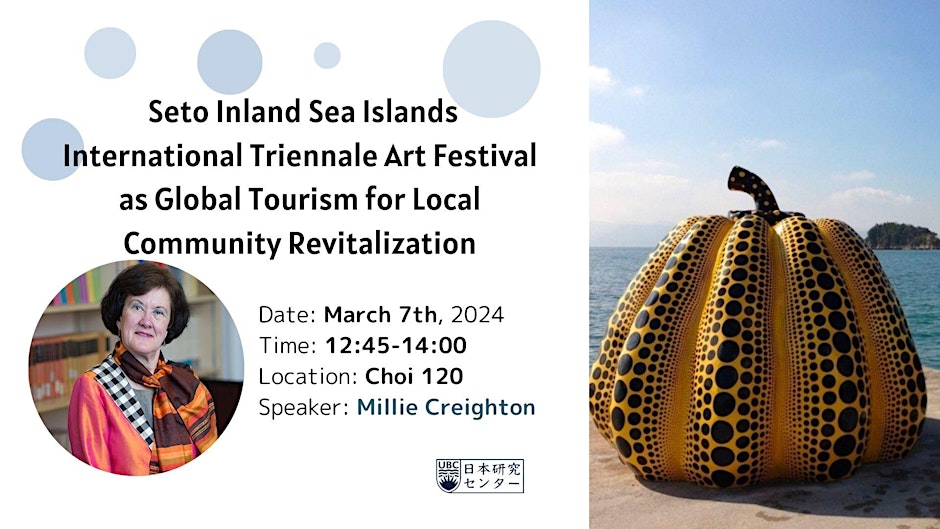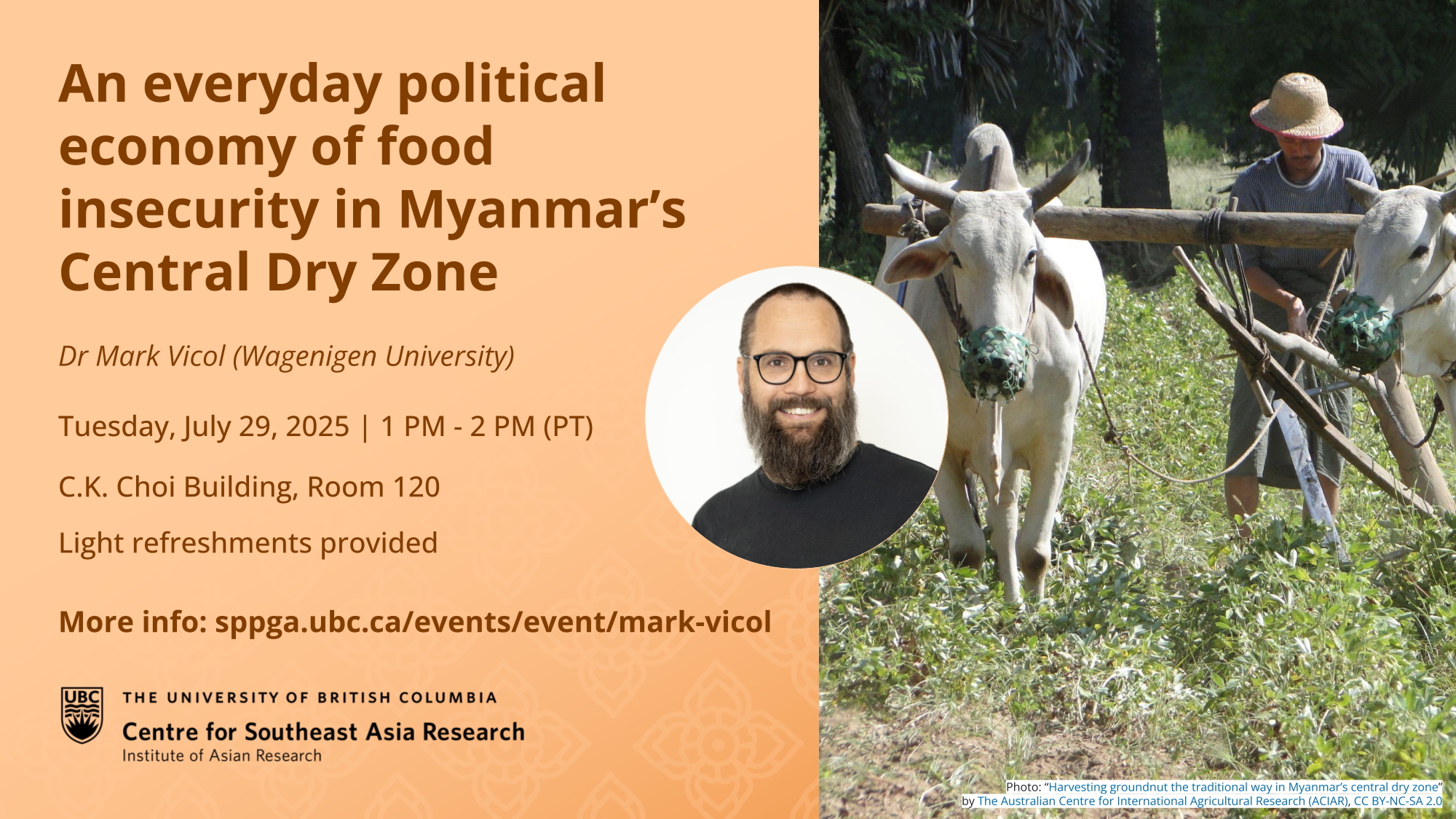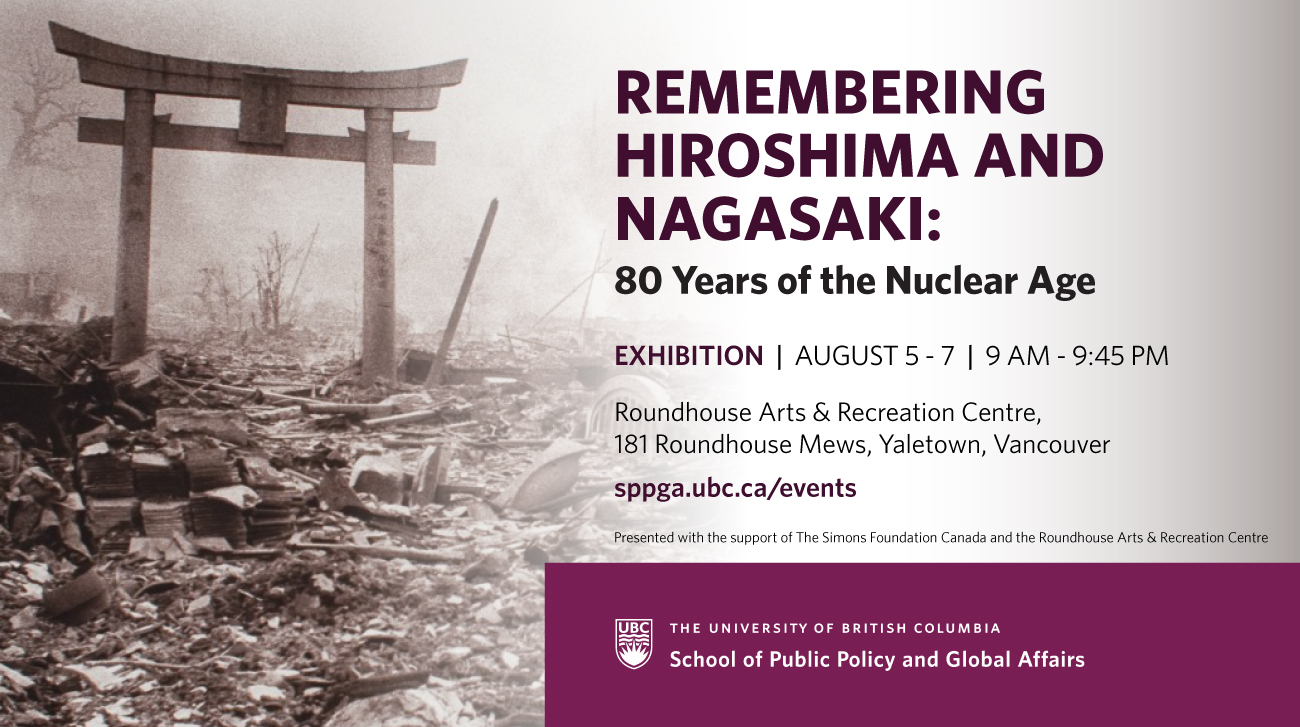

Date: March 7th, 2024
Time: 12:45-14:00
Location: Choi 120, C.K. Choi Building, UBC
Speaker: Dr. Millie Creighton
Event Description:
Tourism is highlighted in Japan for community revival and sustaining outlying areas. Japan is an archipelagic country comprised entirely of islands. However, there are islands and there are islands, with Japan’s four ‘main islands’ considered more central than its thousands of other islands. These ‘other’ islands once held vibrant communities of smaller cities, towns, and villages. With exodus into urban centers, they were depopulated. One major international touristic art festival occurring every three years, involves Japan’s Seto Inland Sea islands. Renowned Japanese architects designed world famous museums on these islands, and international art installations are featured. One question is whether incoming global flows of people really constitutes community survival. However, locals attempt to redefine their identities rather than simply being caught in globalizing processes. For tourists, island hopping allows them to navigate the Seto Inland Sea islands via diverse travel mobilities. Among the Seto Inland Sea islands is Oshima which for nearly a century was used for exiling Hansen’s Disease (aka ‘Leprosy’) patients. This island reveals historic trauma and human rights abuses when Hansen’s Disease patients were feared and mistreated (which happened not only in Japan but elsewhere). Japan renounced this legal exile towards the 20 th century’s end. (A small community of Hansen’s Disease patients still resides there by choice). The timing coincides with recognitions of Indigenous Ainu and other minority groups in Japan, in a country previously proclaiming homogeneity. Many festival art works also deal with human environmental destruction. Art Seto, as a continuing all-year project deals with environmental concerns just as art installations during the festival periods bring together a human history of throwing away, often by dumping into oceans, seas, or other waterways, unwanted material objects and pollutants creating environmental degradation, mirroring a human tendency of using islands to ‘throw away’ unwanted people.
About the Speaker
Dr. Millie Creighton is an anthropologist, Japan specialist and Asianist based in the Department of Anthropology at the University of British Columbia (UBC) in Vancouver, BC, Canada. She was one of the founders of the Centre for Japanese Research at UBC and continues to work in conjunction with it and on the Executive Board of the Centre for Korean Research. She has done extensive research in Japan on department stores, consumerism, tourism, popular culture, gender, minorities, work and leisure, and identity. She was awarded the Canon Prize for her work on Japanese department stores showing how department store marketing reflected nostalgia and the search for community, tradition and cultural identity. Her research on the Seto Inland Sea art festival circuit explores domestic and international tourism within Japan, showing how tourism can highlight art, architecture, nature, the environment, and sustainability, while at the same time being a response to rural depopulation aimed at sustaining communities.
Register HERE.

